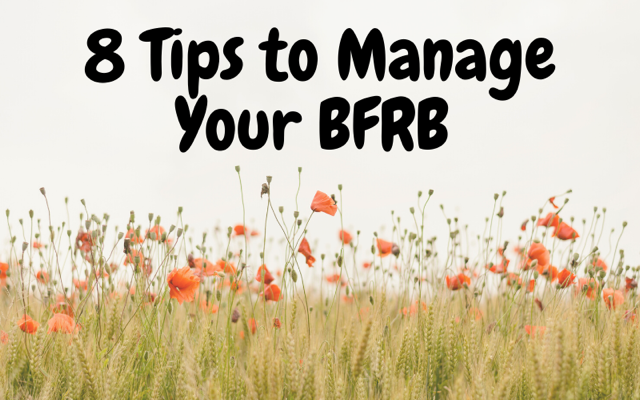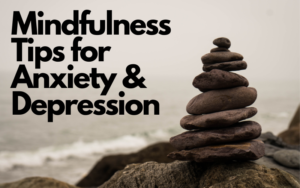Welcome back to another episode of Your Anxiety Toolkit Podcast. Today we have on Christian Newman, the Health Anxiety Coach, to continue our discussion on health anxiety. Christian was on the podcast a while back and because we get so many questions about health anxiety, we decided it would be great to have him on again to answer some of your questions. On this episode, Christian answers “How do I know if my symptoms are anxiety or something else?”, “Is there anything other than CBT and ERP that I can use to treat health anxiety?”, “How do I stop googling my symptoms?”, “How do I stop focusing on sensations?”, and “How do I learn to accept a doctor’s diagnosis?” Christian also shares a bit about his 30 day detox program to help you recover from health anxiety.
 Follow Christian on Instagram @healthanxiety.coach
Follow Christian on Instagram @healthanxiety.coach
If you get a moment, please go over to wherever you listen to podcasts, whether that be Apple Podcast, Stitcher, Spotify, Podbean, and leave an honest review. Tell me how you feel about it, whether it's helping you, what you'd like to see. We are going to give away a pair of Beats headphones of your choice of color once we hit a thousand reviews!
ERP School, BFRB School and Mindfulness School for OCD are open for purchase. Click here for more information.
Additional exciting news! ERP School is now CEU approved which means that it is an accredited course for therapists and mental health professionals to take towards their continuing education credit hours. Please click here for more information.
Welcome back to another episode of Your Anxiety Toolkit podcast. Today, we are going to talk about BFRB’s. Now, a BFRB is body-focused repetitive behavior. Many of you know, I am an Anxiety Specialist; I specialize in OCD and OCD-related disorders. Those related disorders can involve body-focused repetitive behaviors including hair pulling, skin picking, and nail-biting.

Today, I want to give you eight tips to help you manage your BFRB. This is also really helpful if you have any behavior in your life that you want to adjust and change. It is also helpful if you are a family member or a loved one of someone with a BFRB.
The eight tips we are going to discuss today are:
- Identify specifically where you’re engaging in your body-focused repetitive behavior.
- Identify when you engage in your BFRB.
- Identify what emotions trigger your BFRB.
- Identify what thoughts you are having.
- Find alternative behaviors.
- Block the behavior specifically related to the body part.
- Find support.
- Practice self-compassion daily.
Above all else, I want you all to remember that you are not your BFRB. You are way more than this thing that you struggle with. You have so many other beautiful characteristics and strengths and abilities. If you can introduce a self-compassion practice, you will find immense benefit from just gently nurturing the suffering that you are feeling. This is so important for everybody, but particularly for those who are really hard on themselves.
If you get a moment, please go over to wherever you listen to podcasts, whether that be Apple Podcast, Stitcher, Spotify, Podbean, and leave an honest review. Tell me how you feel about it, whether it's helping you, what you'd like to see. We are going to give away a pair of Beats headphones of your choice of color once we hit a thousand reviews!
ERP School, BFRB School and Mindfulness School for OCD are open for purchase. Click here for more information.
Additional exciting news! ERP School is now CEU approved which means that it is an accredited course for therapists and mental health professionals to take towards their continuing education credit hours. Please click here for more information.
Welcome back to another episode of Your Anxiety Toolkit Podcast. Today I want to talk to you about a question that recently was asked by one of my awesome Instagram followers. This person asked me "Kimberley, how do I relax and be self-compassionate when I suddenly find myself with extra time on my hands?" This is such a fantastic question and a really timely one as well. So today we are going to discuss the skill of sitting still. Ask yourselves "When was the last time you allowed yourself to sit still?" and "When was the last time you allowed the discomfort you may be feeling to just be there?"
 Maybe you are thinking to yourselves that you have done nothing but sit still since COVID began, but even if this is true when was the last time you sat still and created space for your emotions to rise and fall? When was the last time you allowed yourself to experience your emotions and feelings without judgment? This is key. You may have been sitting still, but you may have been judging yourself at the same time. True restoration begins when you allow those emotions and feelings to be there without judgment. Are you resisting, pushing away, avoiding, or judging? Or are you willingly allowing yourself to feel all of the feelings? Often when we are stressed, we try to busy ourselves. This is usually an attempt to not feel the discomfort. Ask yourself, are my actions effective in the long term? Resisting, avoiding, and distraction may feel helpful in the short term, but is it really effective for the long term? I invite you to slow down and gently and compassionately make space for the present moment. You may not feel an overwhelming sense of calm and that is OK. Your self-compassion is not done to remove your discomfort, it is done to soothe the discomfort. I am asking you to try slowing down. To schedule time to just be still. Allow the discomfort and the quiet. Make space for all of your feelings and emotions as they rise and fall.
Maybe you are thinking to yourselves that you have done nothing but sit still since COVID began, but even if this is true when was the last time you sat still and created space for your emotions to rise and fall? When was the last time you allowed yourself to experience your emotions and feelings without judgment? This is key. You may have been sitting still, but you may have been judging yourself at the same time. True restoration begins when you allow those emotions and feelings to be there without judgment. Are you resisting, pushing away, avoiding, or judging? Or are you willingly allowing yourself to feel all of the feelings? Often when we are stressed, we try to busy ourselves. This is usually an attempt to not feel the discomfort. Ask yourself, are my actions effective in the long term? Resisting, avoiding, and distraction may feel helpful in the short term, but is it really effective for the long term? I invite you to slow down and gently and compassionately make space for the present moment. You may not feel an overwhelming sense of calm and that is OK. Your self-compassion is not done to remove your discomfort, it is done to soothe the discomfort. I am asking you to try slowing down. To schedule time to just be still. Allow the discomfort and the quiet. Make space for all of your feelings and emotions as they rise and fall.
I hope this was helpful and I hope that you remember to be kind and gentle with yourself.
If you get a moment, please go over to wherever you listen to podcasts, whether that be Apple Podcast, Stitcher, Spotify, Podbean, and leave an honest review. Tell me how you feel about it, whether it's helping you, what you'd like to see. We are going to give away a pair of Beats headphones of your choice of color once we hit a thousand reviews!
ERP School, BFRB School and Mindfulness School for OCD are open for purchase. Click here for more information.
Additional exciting news! ERP School is now CEU approved which means that it is an accredited course for therapists and mental health professionals to take towards their continuing education credit hours. Please click here for more information.
Welcome back to another episode of Your Anxiety Toolkit Podcast. Today we have on the amazing Joshua Fletcher who some of you may know from Instagram as Anxiety Josh. Joshua is a psychotherapist in the UK as well as someone with lots of lived experience with anxiety disorders. He is here today to talk to us specifically about panic attacks and panic disorder. 
Joshua shares his lived experience with panic, derealization/depersonalization, agoraphobia, and anxiety. He tells about his first panic attack and how that led to multiple panic attacks per day. This led him to planning his days around how to avoid having another panic attack. He shares the importance of psychoeducation for people who are experiencing any kind of anxiety disorder including panic. This is not for reassurance purposes, rather it is important to demystify the experience of anxiety. Once you learn what is happening, the anxiety loses some of it's grip. We know that anxiety thrives in the uncertainty and the unknown so becoming educated on what is happening in your brain and body is really so crucial for recovery. Joshua discusses hypervigilance and how this really is at the heart of anxiety disorders. He gives some tips and tools to help if you have been diagnosed with an anxiety disorder including panic disorder. We end the discussion by talking a bit about self-compassion and how important it is to recovery. I hope you enjoy this conversation as much as I did. Joshua has so much wisdom to share and I think you will find his words not only helpful if you are struggling with an anxiety disorder, but also really inspirational as well.
Instagram @AnxietyJosh
Click here to find links to Joshua's books, podcast, and more!
If you get a moment, please go over to wherever you listen to podcasts, whether that be Apple Podcast, Stitcher, Spotify, Podbean, and leave an honest review. Tell me how you feel about it, whether it's helping you, what you'd like to see. We are going to give away a pair of Beats headphones of your choice of color once we hit a thousand reviews!
ERP School, BFRB School and Mindfulness School for OCD are open for purchase. Click here for more information.
Additional exciting news! ERP School is now CEU approved which means that it is an accredited course for therapists and mental health professionals to take towards their continuing education credit hours. Please click here for more information.
Welcome back to another episode of Your Anxiety Toolkit Podcast. Today I want to share with you the 5 mindfulness tips that I use with my clients to help manage symptoms of anxiety and depression.  The first tip is to observe. Instead of taking thoughts as fact, try simply observing your thoughts. An example may be "I am having the thought that bad things may happen." The second tip is to be curious. If you are able to be curious, you can actually change the narrative. Instead of being rigid, try being open to other possibilities. The third tip is to leave judgment behind. We often make the statement that our thoughts and feelings are wrong. Instead leave out the judgment and try "I am noticing this feeling is making me uncomfortable." This brings you back to a place of objectivity. The fourth tip is to be present. Bring your attention back to the present moment. Try to not focus on the past or the future. The fifth and final tip is to catch the stories you tell yourself. Be very careful when you say things such as "I can't handle this." Try to reframe that statement with "I can tolerate the discomfort." or "I can do hard things." I hope these tips have been helpful to you. I know that I find them incredibly helpful and use them often myself and with my own children.
The first tip is to observe. Instead of taking thoughts as fact, try simply observing your thoughts. An example may be "I am having the thought that bad things may happen." The second tip is to be curious. If you are able to be curious, you can actually change the narrative. Instead of being rigid, try being open to other possibilities. The third tip is to leave judgment behind. We often make the statement that our thoughts and feelings are wrong. Instead leave out the judgment and try "I am noticing this feeling is making me uncomfortable." This brings you back to a place of objectivity. The fourth tip is to be present. Bring your attention back to the present moment. Try to not focus on the past or the future. The fifth and final tip is to catch the stories you tell yourself. Be very careful when you say things such as "I can't handle this." Try to reframe that statement with "I can tolerate the discomfort." or "I can do hard things." I hope these tips have been helpful to you. I know that I find them incredibly helpful and use them often myself and with my own children.
If you get a moment, please go over to wherever you listen to podcasts, whether that be Apple Podcast, Stitcher, Spotify, Podbean, and leave an honest review. Tell me how you feel about it, whether it's helping you, what you'd like to see. We are going to give away a pair of Beats headphones of your choice of color once we hit a thousand reviews!
ERP School, BFRB School and Mindfulness School for OCD are open for purchase. Click here for more information.
Additional exciting news! ERP School is now CEU approved which means that it is an accredited course for therapists and mental health professionals to take towards their continuing education credit hours. Please click here for more information.